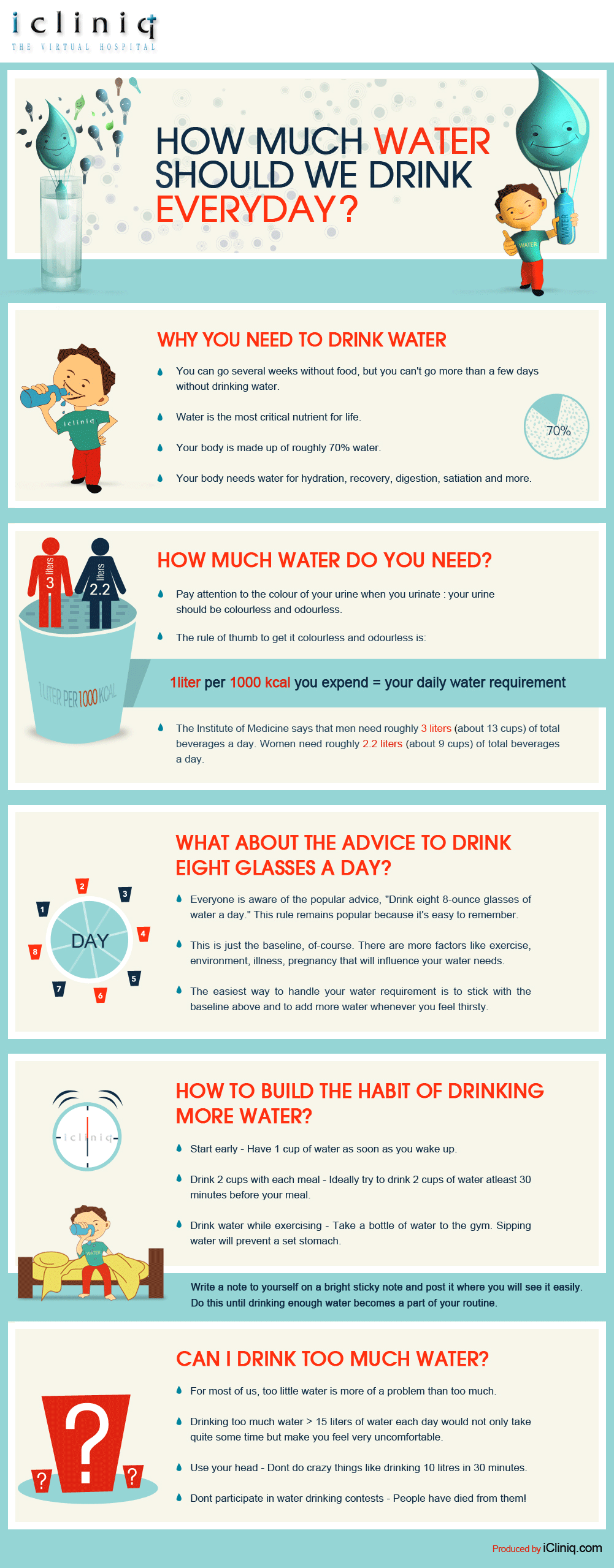Most people are familiar with the “rule” that we should drink eight 8-ounce glasses of water a day. As it turns out, that isn’t so much a rule as it is a guideline. Many factors, such as age, weight, and level of activity play into how much water each individual should consume. You also need to substitute the word “fluid” for the word water, as it’s fluid our bodies require. Fluids can be plain water, juice, coffee or tea, or food. The only fluid to be avoided when you need to hydrate is alcohol, as it leads to dehydration.
An easy way to know if you’re drinking enough water is to observe your urine. If it’s pale yellow and clear, you’re usually adequately hydrated. The urine should also be close to odorless, unless you’ve recently eaten something like asparagus that has a distinctive odor or if you’re taking a medication that creates strong-smelling urine.
What Water Does in Your Body
Fluids are essential to keeping our bodies functioning smoothly. Every organ, including our brains, require a certain amount of liquid to do their jobs. You can’t properly digest food and absorb the nutrients in them without fluid. You don’t have to drink water with your meal if you prefer not to—just consume juicy fruits, vegetables, and soups.
Our biggest organ is our skin. It needs water to stay soft and flexible, but it is also part of our body’s temperature control system because of the way it allows us to sweat when we’re overheated. Forget about the idea that drinking lots and lots of extra water will take away wrinkles or lines. Dehydration contributes to dry and wrinkled skin, but over-hydration won’t cure them.
Water by itself won’t help us lose weight. That’s another myth. Substituting plain water or a low-calorie drink for high-calorie beverages is what will help us shed those extra pounds. Adequate fluids will, however, help keep us energized. With energy, we can exercise away excess weight, as well as generally feel good.
Too Much of a Good Thing
We die quickly if we don’t consume enough fluids. However, it’s possible to over–hydrate. That’s rarely fatal, but it’s definitely not good for our bodies. Drinking too much water or drinking it too fast leads to water intoxication.
You’ve heard it a million times. When it’s hot outside or you’re exercising, drink lots of water. It’s how your body stays hydrated. Dehydration can lead to all kinds of conditions, some very serious and even life-threatening.
It works both ways. Our bodies must keep a certain balance between electrolytes. Electrolytes are minerals, the two most common of which are sodium and potassium. We lose most of our electrolytes when we sweat, although they are also a part of urine. Drinking excessive amounts of water, especially when you’re exercising to replace fluids lost to sweat, leads to excessive loss of electrolytes. Lose too much and you’re on your way to the nearest emergency room.
